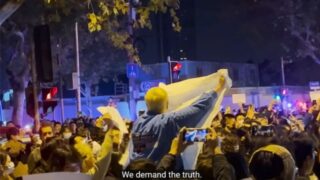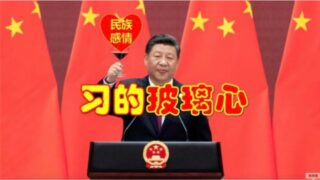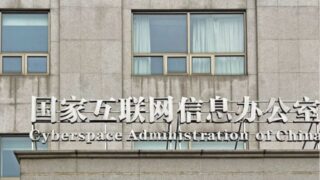Not only “illegal” but also “negative” opinions are now forbidden. Comparing the 2022 with the previous 2017 regulations shows that censorship will increase.
by Zhou Kexin


Thousands of websites invite you to leave a comment on literally everything, from news to books and from food to sport, and China is no exception. These comments were never unsupervised, and in 2017 “Provisions on the Management of Internet Post Comments Services” already made it mandatory for those who managed websites where comments could be posted to know the real identity of users posting under pseudonyms, review the content, eliminate “unlawful” comments, and report those who had posted them to public security.
However, a preliminary review before the posts were published was mandatory only for comments on news. In other fields, the review might have occurred after posting, meaning that in the case, for example, of comments on a book or a movie the “unlawful” comment might have appeared and remained visible for a while, until reviewed and removed.
A new version of the Provisions has been published by the Cyberspace Administration of China, soliciting opinions until July 1, 2022 (a cosmetic “democratic” process preceding the promulgation of all new regulations), and is expected to come into force shortly.
What is interesting is a comparison between the 2017 and 2022 Provisions. The main change is that the rules regulating comments about news are now extended to all subjects. All should be reviewed before publications. This does not mean, the new Provisions specify, that web site managers are exempted for controlling the comments and discussions after they have been published. But now this is a second check—presumably, because that a comment is dangerous may not be obvious at first sight, and emerge only from the subsequent discussion—while the first check should be performed before publication.
In case of comments that may have a special “influence on public opinion or the capability for social mobilization,” the principles of national security should be applied. When in doubt, site managers should contact public security.
A second important change is that the comments should not only “respect the law,” as provided in the 2017 version, but “affirm the core Socialist values.” The latter are now ubiquitous in Chinese laws and regulations. Those who post comments should understand that the ultimate purpose of the Internet in China is to spread official propaganda, and behave accordingly.
A third decisive change is that while in the 2017 Provisions “unlawful” comments were prohibited, now the prohibition refers to “unlawful and negative” posts. “Negative” posts are those not necessarily “unlawful” but nonetheless not aligned with the CCP and its policies.
Finally, posting under pseudonyms remains permissible, under the principle already included in the 2017 Provisions “real name on file but whatever you want up front.” However, what is new in the 2022 version is that those managing the web sites should also have a look at the social credit of those who post (whose identity they know), and be particularly vigilant if their social credit is bad.









